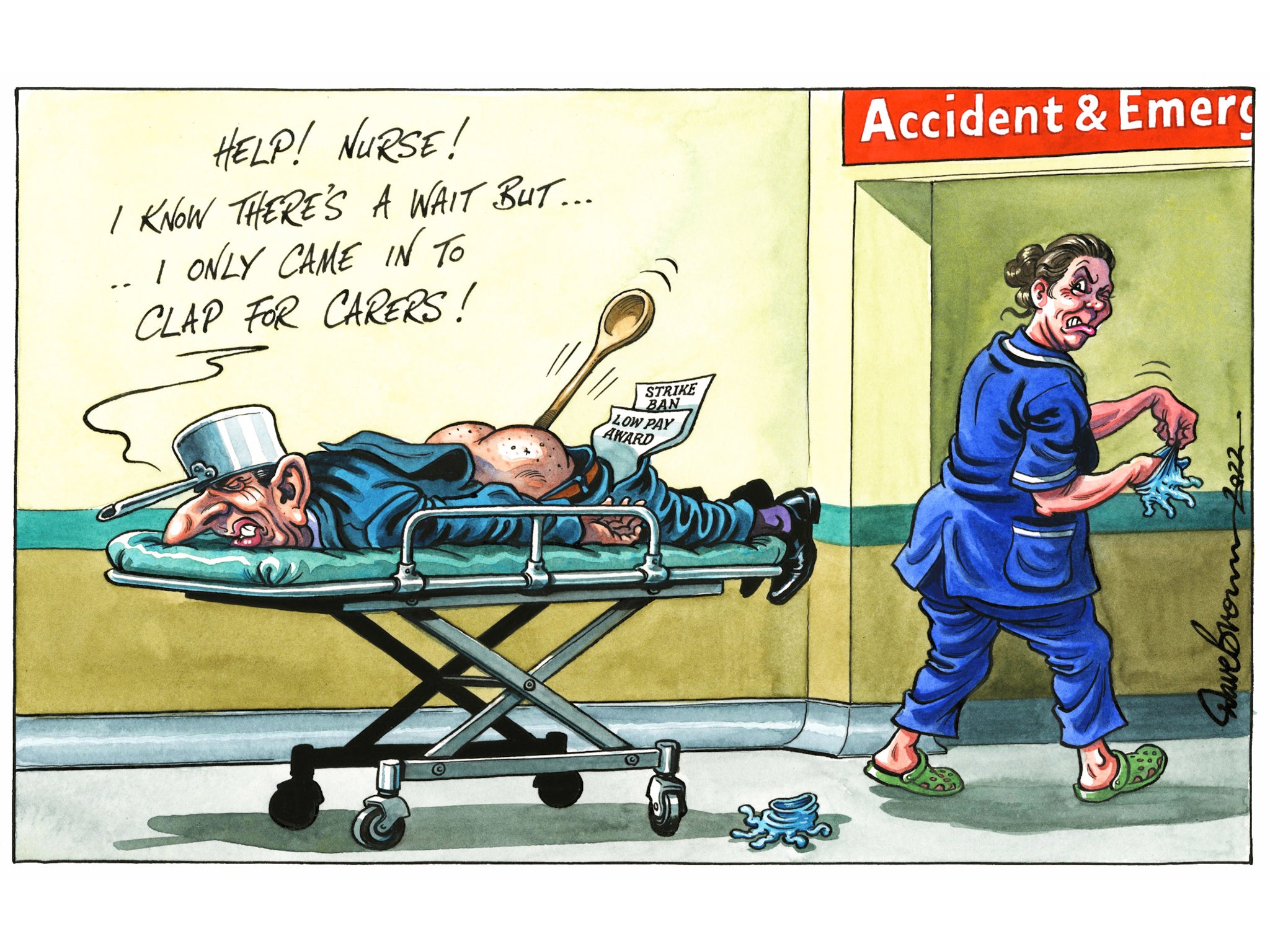Those hoping that the government will somehow save them from inconvenience (or worse) this Christmas will be disappointed. The government appears to have no answers and not even much seasonal goodwill.
The health secretary, Steve Barclay, continues to snub talks with the Royal College of Nursing or Unison, so hospitals and paramedic services will soon be under even more pressure – with an undoubted impact on patients. The transport secretary, Mark Harper, displays more common sense and imagination but the RMT union remains unimpressed and unmoved.
Home secretary Suella Braverman, always ready with an outrageous quote, suggests that travellers scrap their holidays because of industrial action by Border Force staff: “I really want to urge people who have got plans to travel abroad to think carefully about their plans because they may well be impacted.”
Every so often, suggestions, sourced or otherwise, appear in the media that the army can be called in to cover for Border Force staff, ambulance crews or any other workers going on strike, as if HM armed forces were a kind of temp agency. The defence secretary, Ben Wallace, has told cabinet colleagues to treat the troops with some respect and consideration. The British army is not there to break strikes and has no wish to lose its nonpartisan status and national support.
But the prime minister is making some plans for new anti-union laws. These won’t be anywhere near ready for some weeks, and thus the worst of the discontent will continue. There appears to be the political will to take the extraordinary step of restricting the right to strike still further, or even banning industrial action in certain key public services, just as is the case with the armed forces and the police.
Even higher thresholds for strike ballots; longer notice periods for employers; “minimum service obligations”; putting pay offers to members in a “neutral” fashion; and outright bans for groups such as ambulance crews are all being debated. The government has already made use of agency labour to break strikes, much to the discomfort of the agencies themselves.
Mr Sunak reportedly wants to look “tough” but a raft of new and unworkable laws will only make him appear foolish and won’t actually make anyone’s life easier. Over the past 40 years of restrictive industrial relations legislation, some of the strictest in Europe, Britain’s unions have become adept at maximising turnout and yes votes for strikes.
No matter how high ministers set the bar, the likes of Mick Lynch of the RMT can persuade his members to jump higher. If he thinks a pay offer is risible, he will – presumably – be able to say so publicly. There will never be enough skilled agency workers to fill the gaps left by mass industrial action. If a group of ambulance crews take official or unofficial action, will the government fine them or their union? Or order a custodial sentence for “illegal” action, the equivalent of desertion in the armed forces? And how will ministers force anyone to work overtime if they don’t wish to?
To keep up to speed with all the latest opinions and comment, sign up to our free weekly Voices Dispatches newsletter by clicking here
Strikes are not the problem but a symptom of more fundamental issues. Workers would not be able to exert such bargaining power if there wasn’t a labour shortage – a product of Brexit, long Covid and a trend towards early retirement. And if the government succeeds in removing the right to strike, and eradicates any hope of higher wages to keep up with the cost of living, what will happen?
Let’s look at nurses. The impact is likely to be that more will leave the profession, and fewer will think it worthwhile, or even financially practical, to train. This will leave the remaining nurses forced to work even harder, creating a vicious cycle of decline.
There is also the small matter of the right to withdraw labour in a free society. It is a basic right, and one protected by the European Court of Human Rights, to which the UK remains – for now – a signatory. It is impossible to see the government winning a test case for a law making any form of industrial action illegal.
The prime minister looks to be spoiling for a fight – but he is cruising for a bruising. The strikes are becoming unpopular as they bite harder, but that does not mean that the public is willing to give their full support for some campaign to crush and humiliate nurses. Mr Sunak should now try a more rational and sustainable approach to ending the industrial discontent because, sooner or later, he will have no choice.







Join our commenting forum
Join thought-provoking conversations, follow other Independent readers and see their replies
Comments